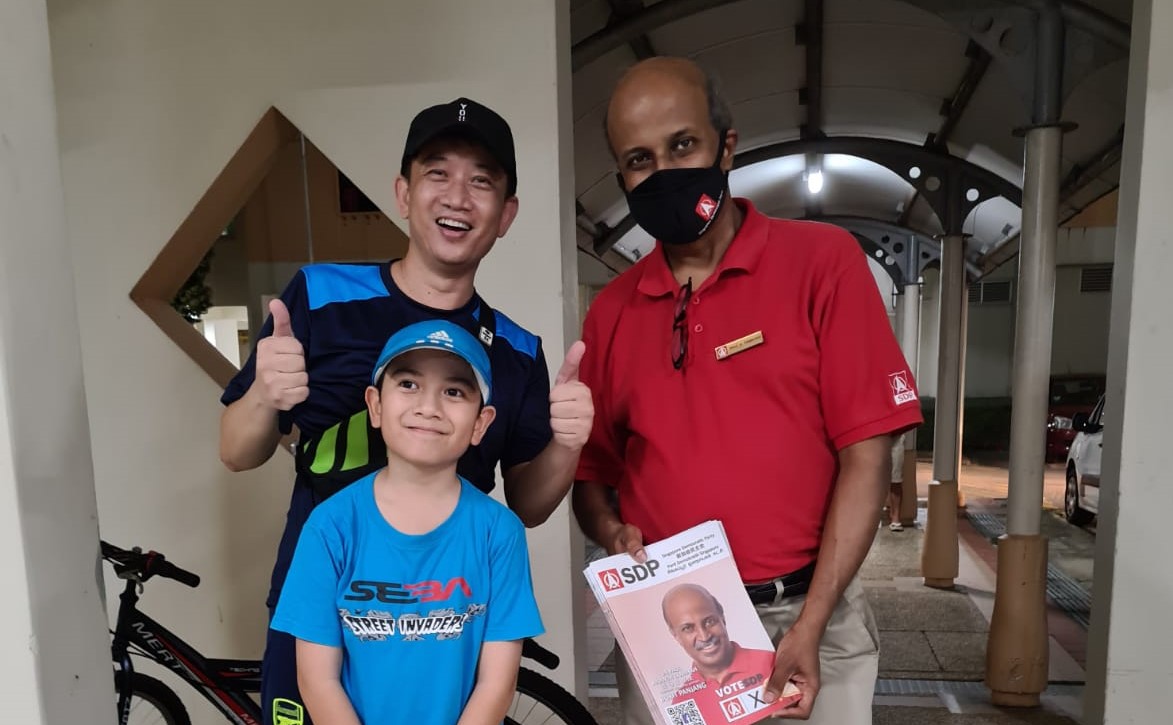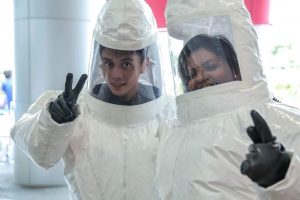Disclaimer: RICE does not endorse or support any political party in Singapore.
In this year’s General Elections, Dr Tambyah is running in Bukit Panjang SMC.
Last week, RICE conducted a Zoom interview with Dr Tambyah. It has been lightly edited for length and clarity, with additional context, clarifications, and responses provided in the endnotes.
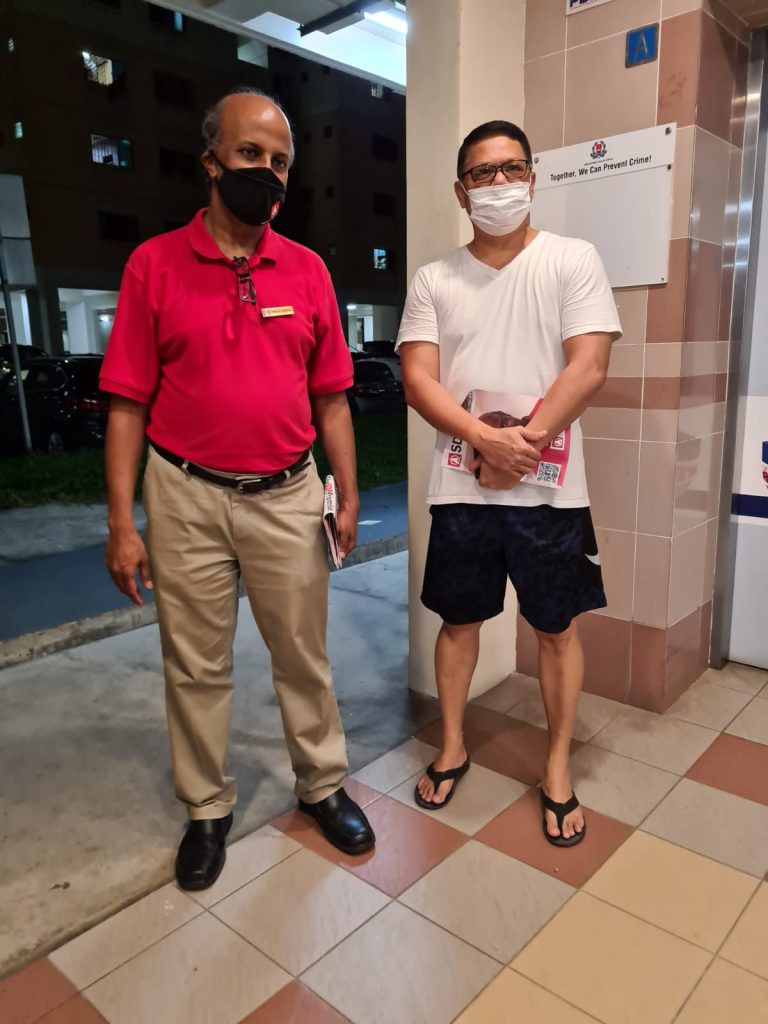
I’ve been involved in public healthcare for a very long time. Singapore has some of the best doctors, nurses and allied health professionals in the world. And we have access to really good technologies. The trouble is, the healthcare financing system is all messed up.
I used to give feedback to the ministry. In fact, I joined Facebook because you could give feedback to the Ministry of Health (MOH) on their Facebook page. But you couldn’t give feedback on their website [when they first set it up]. Khaw Boon Wan used to tell people that I was the first doctor to give him feedback!
I’m also there at every town hall meeting that the ministry organises. It’s quite funny. Sometimes when they’re presenting something to senior doctors, they’ll present it, and then they’ll say, “Any questions?” Usually nobody asks. So the Minister or Perm Sec will go, “Paul Tambyah, do you have questions?” And then I will stand up and ask a question. Only after that people will start to ask questions too.
That’s all well and good. But, frankly, all they do is they listen very politely and they ignore you. And they do what they’re going to do anyway. So I realised that the only place where the minister actually has to answer you is in parliament.
Can you elaborate on your claim that the healthcare financing system is “all messed up”?
Unlike countries like Korea and Taiwan, which adopt the universal healthcare system, we seem to have followed the American model, which views healthcare as a for-profit-driven industry. It’s like a business as opposed to a basic service.
Before the mid-1980s, Singapore had a single-payer healthcare system run by the Ministry of Health, which operated all the public hospitals. When you went to a polyclinic, you paid $1 [$2.33 in 2019] for a consultation. You went to a hospital, you paid $5 [$11.65] for a consultation.
There was no longer a universal single-payer healthcare system after Alexandra Hospital became restructured. So what they did was they converted it into MOH Holdings. You’ve got the different clusters, you’ve got all these things where there are different companies—they’re government-owned companies. But it’s not the same as a government ministry.[1]
In fact, I have a parking label from I think 1993, which says, Ministry Of Health, Alexandra Hospital. And I keep it because, to me, that’s a memorabilia of Singapore’s outstanding universal healthcare system that died.
Unfortunately, Singapore seems determined to repeat every mistake of US healthcare in the last 20 years. That’s a big problem.[2]
You were recently appointed as the president of the International Society of Infectious Diseases. What are your thoughts on how Singapore has handled the Covid-19 pandemic?
To me, the big difference between the response to SARS and the response to Covid has been that in SARS, the medical task force was front and centre, and the ministerial task force was in the background. Whereas with Covid, it’s the ministerial task force that’s in front, and the medical task force is behind the scenes.
The ability to let professionals run the show and let the politicians make the policy calls is what happened with SARS. I think that’s part of the reason why SARS was successfully handled and this one was not so successful.[3]
Actually, I think that in February, the way Singapore handled the epidemic was outstanding. We did very detailed contact tracing, even among the migrant workers. For example, there was a cluster of workers at Seletar Aerospace. What MOH did was they quarantined all the workers’ contacts, they did tracing, they did isolation, and that outbreak ended with five people.
That didn’t happen in March. To this day, we don’t know why.
Those of us in the opposition think that the ministerial committee dropped the ball because they started thinking about holding an early election. We might be wrong. But that’s the appearance of it: that they didn’t do the same things in March that they did in February.
If they had done in March what they did in February, when the first few cases happened in the migrant worker dormitories, there’s no reason why it wouldn’t have worked. Instead of having 40,000 people infected, we may have had a couple thousand.[4]
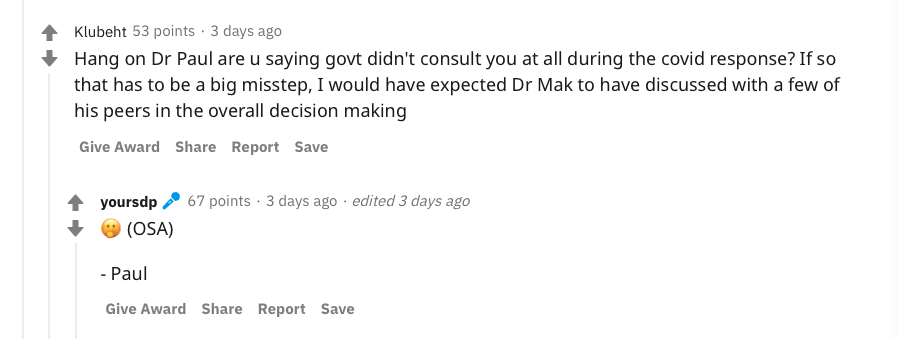
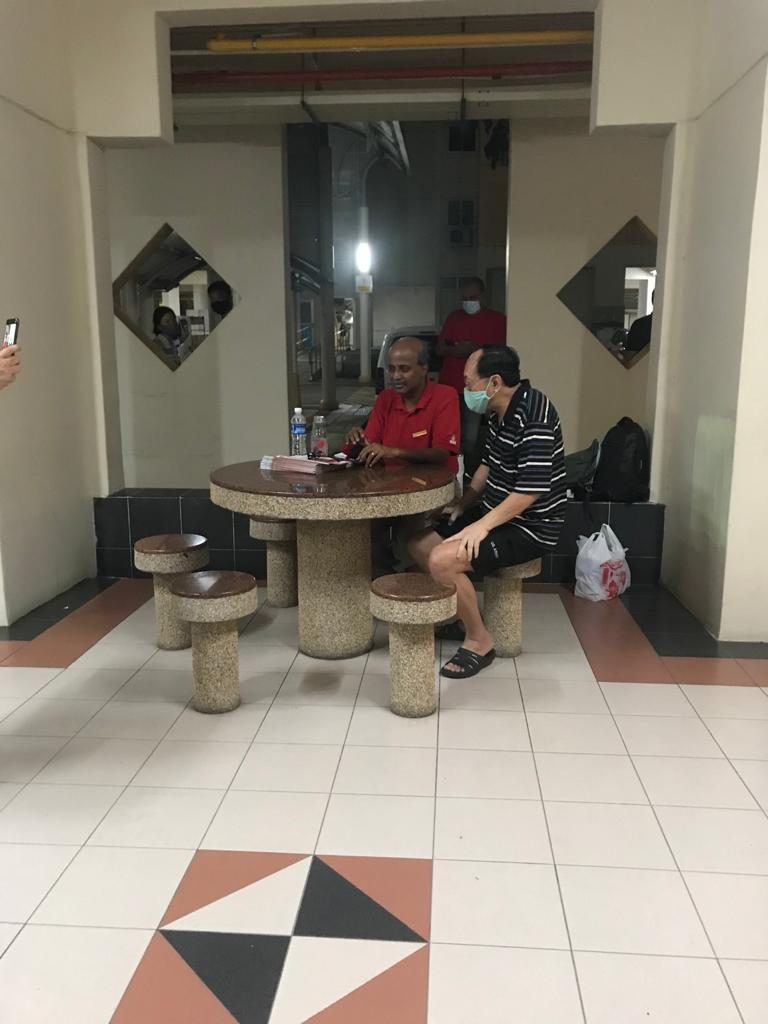
That’s the nature of politics in Asia, not just in Singapore. During the last general election, it was very obvious that the PAP was selling itself as the Lee Kuan Yew party. That’s the way it is.
But there are a diversity of views within the SDP. Soon Juan can get outvoted in a CEC (Central Executive Committee) meeting. So, while he is obviously a significant personality and he’s been with the party for a really long time, there are others who have been in the party just as long as he has. They may not have as strong a personality or be as well known. But internally, they have just as much of a say.[5]
Does SDP have any plans to rebrand itself beyond Chee Soon Juan?
We have tried. I don’t think Soon Juan was present at any of the launches for the policy papers. We’ve been pushing the personal Facebook pages [of other SDP members]. We’ve been doing stuff like that.
But nobody bothers to report them: the mainstream media, especially, has a one-track mind.
Is this a symptom of the control the government has over the media in Singapore?
Definitely. You see, the media is familiar with Chee Soon Juan. They know when to drag out the smears, dredge out things that happened 30 years ago. It’s an easy approach for them if they can just do that. That’s unfortunately the way this thing works.
We think the NPPA (Newspapers and Printing Presses Act) should be repealed. The reality is, we think that Singaporeans are pretty mature. Even during the POFMA debate it was quite clear that if something is obviously false, it doesn’t have legs.
Even the CSIs [“Crime Scene Investigation”; internet terminology for digging up the background of an individual] that are being done right now for some of the candidates. Stuff that is real gets through; stuff that is not true gets shut down.

The main reason is that the focus of this election is economic. This is not an ordinary election. It’s being held in the middle of a pandemic. We want to have a razor-sharp focus.
It’s not that other issues are less important. Singapore politics are such that the PAP will pick on some really tiny thing and blow it up and make you lose your perspective. They love to divide and rule.
That said, the SDP has been very consistent in its stand on social justice issues and we are not going to change.[6] The reality is, we need to address the super pressing issues first. And then one by one … We promise we will deal with the social issues as they come along the way.
Can I understand from what you said that SDP is for the repealing of 377A and equality of LGBTQ people in Singapore?
Again, we don’t want to go into this, because it’s going to get picked up and … our [LGBTQ] friends are just going to be used as a political football. I don’t think’s fair to anyone, least of all people who are affected by the legislation.[7]
Right now our focus is on the 4Y1N. And, like I said, the SDP has been a consistent party and we will deal with every issue as they come.
What do you mean when you say that the “PAP loves to divide and rule”?
For example, that’s why they implemented this Reserved Presidency. Nobody I know in the Malay community … has said we need a Malay president. The Malay community talks about having Malays in the air force, the navy, the commandos. There are so many highly qualified Malay individuals who don’t seem to get selected for the air force, navy, or commandos. And then the PAP turns around and says we need a Malay president. Trying to divide the population is just not helpful.
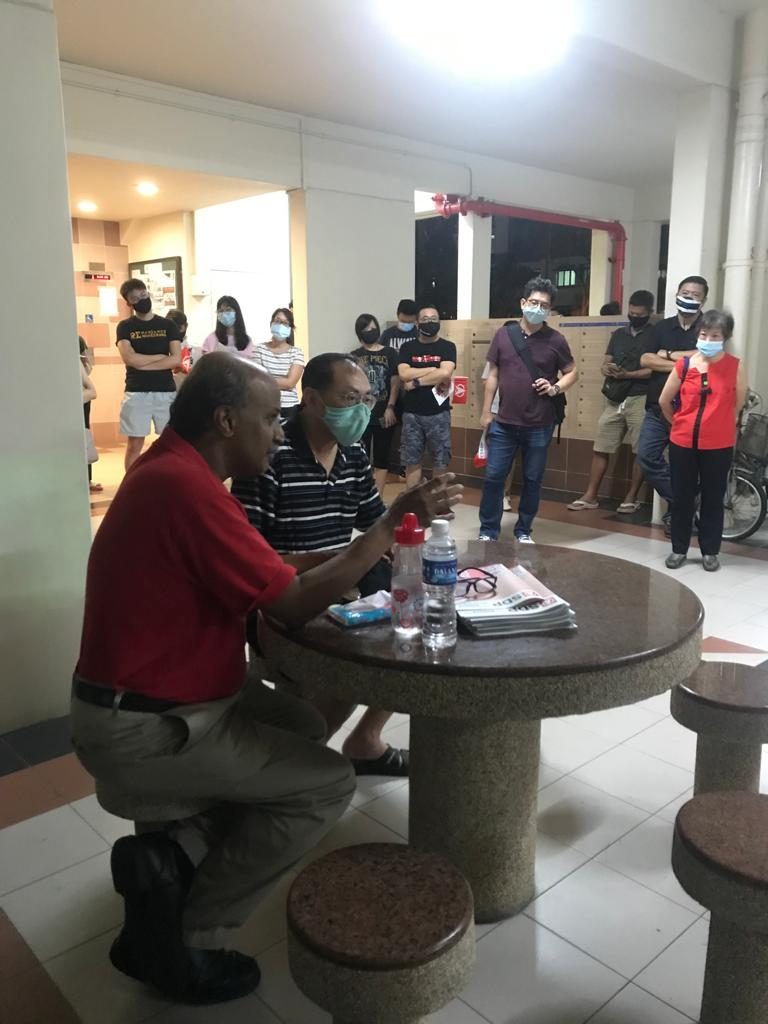
I hate to say this, but the social justice issues are pressing for middle class younger people. The average younger person is worried about getting a job. There are so many of the graduates we meet, even from the universities, who are looking at things in the gig economy, where there’s no job security, where there’s no benefits.
And so this is where the idea of retrenchment insurance, where you have money in your pocket, where you can get together with a bunch of people and form a small business … I think it’s time that we start doing something like that.[8]
Given its emphasis on prioritising the livelihood of Singaporeans, how can the SDP avoid veering into nationalism and xenophobia, such as what is happening with Trump and Brexit?
These waves of nationalism, they come and go. A lot of them are driven by economic factors, by restructuring. And the thing about the UK and US, there are huge corporate interests who are also playing a part in it.
The answer is not less democracy, but more. That’s why we need the independent media calling out the people who are funding the Brexit campaign or Donald Trump. During the Watergate scandal—what did they say?— “follow the money”. By tracing the trail you find out who are the people who profit from some of these so-called nationalism and things like that.
One last question: which international politicians do you admire?
I totally admire Nelson Mandela. And the thing I admire the most about Nelson Mandela is not his perseverance or his so-called forgiveness, but the fact that he was willing to give up power. He became president. After his term in office was done, he gave up power and started looking after grandchildren. That’s what a politician needs to do.
When you can do that, it means the institutions are strong.
So many other leaders in Asia clung on to power for way too long. But Mandela recognised that, for the good of the country, he had to step down. He had to let the process take place.
[1]: In Affordable Excellence: The Singapore Healthcare Story, the scientist and businessman William A. Haseltine writes: “A sweeping reform started in the 1980s, when the government embarked upon the restructuring of its public hospitals, giving them greater autonomy to function more like private hospitals than public institutions under a central control.”
According to Associate Professor of History Michael Barr, these reforms, started in 1984, also involved “the government’s reduc[tion] of ‘subsidies’ to hospitals and polyclinics … followed by overt government efforts to encourage the establishment of private hospitals, and across-the-board increases in hospital fees.”
[2]: The World Health Organization ranks Singapore’s healthcare system as the 6th best in the world, The Economist Intelligence Unit ranks it 2nd, and Bloomberg 1st.
However, in a 2018 article, Today reported that our healthcare system “falls behind most countries when it comes to providing access to healthcare due to shortages of hospital beds and skilled healthcare professionals.”
A 2013 case study published by the Lee Kuan Yew School of Public Policy states that “the main deficiencies of the healthcare financing system are its poor coverage in terms of the types of people and the types of health risks that it covers. Healthcare may be unaffordable, especially if patients face catastrophic medical bills. The system also falls short in giving Singaporeans ‘peace of mind’.” (Though, having been written in 2013, it may not reflect more current financing schemes like MediShield Life.)
Associate Professor Barr also notes that “It is at the very ordinary level of affordability and availability that the system is facing the most strain. This affects the poor (especially the female elderly poor), the middle class and anyone with a serious chronic illness, meaning that everyone except the very wealthy … feels considerable vulnerability.”
Barr concludes: “one is left wondering if the key to the system is merely the government’s monopoly of information and its authoritarian control of political discourses. It seems highly likely that if one could examine the Singapore health system from the inside, one would find a fairly ordinary health system with some strong points and many weaknesses.”
[3]: A 2012 paper entitled “Combating SARS and H1N1: insights and lessons from Singapore’s public health control measures” mentions that the Ministry of Health “initiated a SARS taskforce to look into the mysterious strain.” It was following the findings of this taskforce that “the Singaporean government swiftly declared SARS a notifiable disease under the IDA”.
Professor Chee Yam Cheng, an editorial board member of the Singapore Medical Association, explains that this SARS task force “compris[ed] senior staff (doctors and administrators) of public hospitals … Later, the private hospital officials were also invited to sit in. It also had various representatives from WHO and from CDC. Chief of Medical Corps, Singapore Armed Forces (SAF) was also represented.”
[4]: On 5 July, National Development Minister Lawrence Wong came out to call Dr Tambyah’s accusation “baseless and false”, saying that “[medical professional] are an integral part of the team, we involve them in all our deliberations, and every time Mr Gan Kim Yong and I hold the press conferences we have the director of medical services (Associate Professor Kenneth Mak) with us.”
Factually, the government-run fact-checking site, also asserted that “The [Covid-19] Multi-Ministry Taskforce [is] led by the Ministers and staffed by senior public officials and medical professionals.”
[5]: At this point of our conversation, Dr Tambyah abruptly stops talking, picks up his phone, and excuses himself: “Give me one second. I’m going to mute myself.”
My curiosity is piqued. Could it be Chee Soon Juan updating him on election strategy? A foreign doctor asking his advice on tackling a Covid-19 crisis? The dean of NUS seeking his counsel on education policy?
Dr Tambyah returns to the call. Smiling sheepishly, he says, “Sorry, that was my mum.”
[6]: According to The Singapore LGBTQ Encyclopaedia, both Dr Paul Tambyah and Dr Chee Soon Juan support the repeal of Section 377A and equal rights for the LGBTQ community. For instance, Dr Chee has attended Pink Dot and IndigNation events. He also defended Vincent Wijeysingha against scurrilous attacks on his sexuality. As for Dr Tambyah, he said in an interview that “The SDP has been very clear about this–that 377A should be repealed”.
However, SDP’s 2007 article that unequivocally stated their support of repealing Section 377A is no longer on their website; only a version archived by a third-party website can be accessed.
[7]: During the 2011 elections, Vincent Wijeysingha, who was then an SDP candidate for the Holland-Bukit Timah GRC, was accused by the PAP team, led by Dr Vivian Balakrishnan, of “suppressing” a video that would “raise some awkward questions” about a possible “gay agenda”. In 2013, Wijeysingha made history by being the first Singaporean politician to officially come out as openly gay.
The SDP’s relative reticence about speaking up on LGBTQ issues this election, then, may be a consequence of the uncalled-for attacks they had to contend with during past elections.
[8]: The SDP’s 4Y1N campaign for the 2020 GE proposes providing retrenchment and retirement benefits. More intriguingly, it also plans to let “groups of 10 individuals to band together and receive their payouts in a lump sum as start-up capital to fund business proposals”, as my colleague writes. For more details on their 4Y1N campaign, see here or here.
Do you live in Bukit Panjang? Have you interacted with Dr Tambyah? Let us know your thoughts at community@ricemedia.co.

